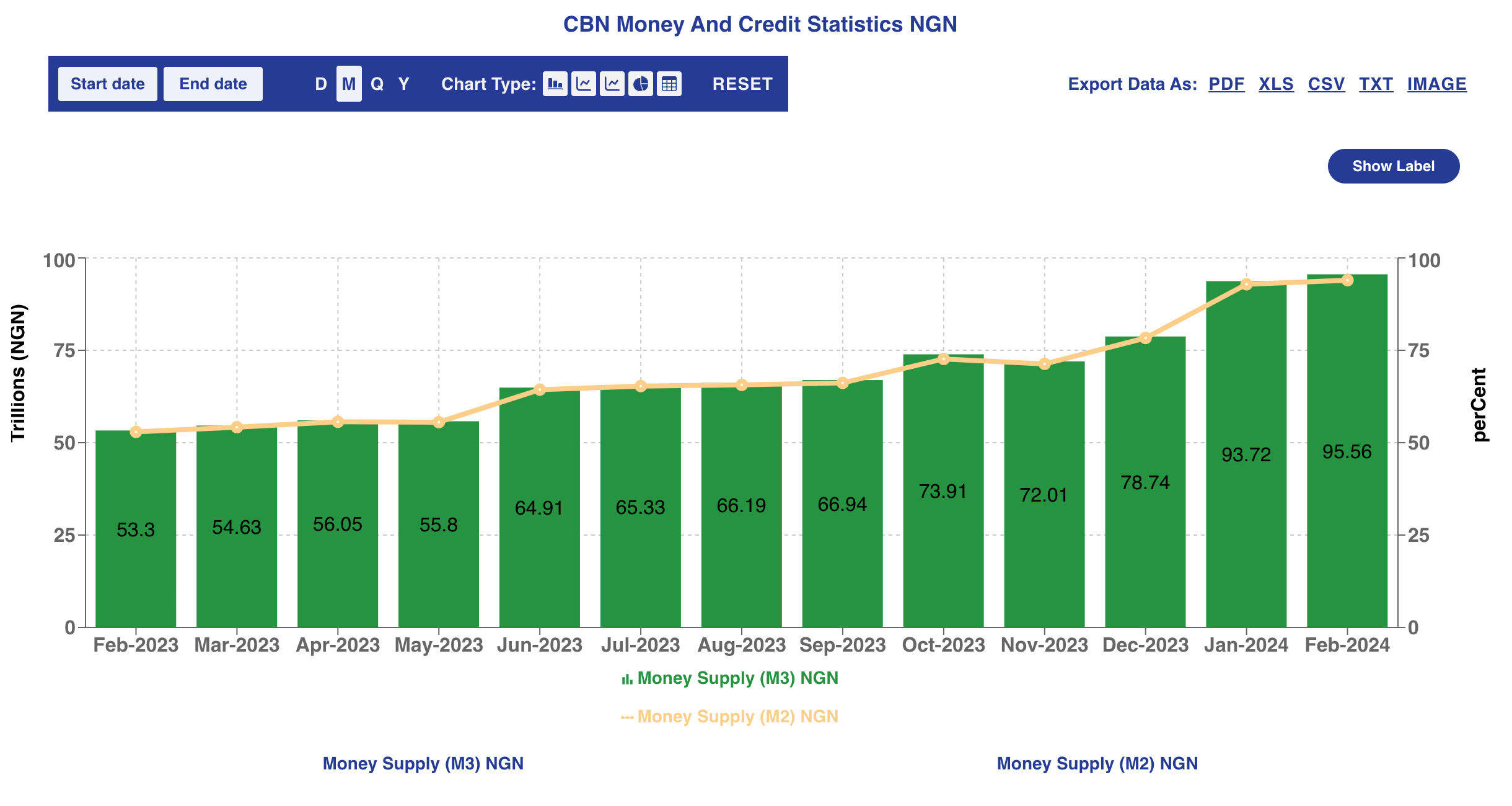The federal authorities’s subsidy reforms, slightly than the enlargement of cash provide, are a significant driver behind the persistent core inflation in Nigeria.
That is in line with a examine by Eric Ismail Otoakhia of the Division of Economics, School of Enterprise College, Ahmadu Bello College, Zaria, which was revealed within the newest version of Bullion, a publication of the Central Financial institution of Nigeria (CBN).
Titled ‘Do Gasoline Subsidy Shocks Extend Value Instability in Nigeria?’, the examine delves into the financial repercussions of Nigeria’s method to dealing with gas subsidies. The paper rigorously examines the ripple results that comply with the elimination of gas subsidies on the nation’s value ranges from December 1996 to August 2023. By adopting a dynamic autoregressive mannequin, the examine goals to quantify the impacts of those adjustments on financial stability.
Subsidy reforms counterproductive to value of residing stability
The findings pointed to the counterproductive results of subsidy reforms on the price of residing, highlighting the challenges confronted by fiscal and financial coverage coordination in making certain financial stability.
The examine learn:
- “The elimination of such subsidies, when accompanied by revenue redistribution and elevated authorities spending on public investments, inevitably results in a persistent enhance within the value degree.
- “The findings of this paper have proven that authorities actions in dealing with gas subsidies are counterproductive to fiscal and financial coverage coordination in making certain a secure value of residing.”
The examine, nevertheless, famous that gas subsidies have been a double-edged sword, providing reduction towards the rising value of residing by stabilizing gas costs, but posing sustainability challenges amidst Nigeria’s vital infrastructure wants and escalating debt ranges.
The cash provide impact
Nigeria’s broad cash provide (M3) surged to a brand new historic excessive of N95.56 trillion as of February 2024 regardless of the hawkish tightening stance of the Financial Coverage Committee (MPC). This determine represents a staggering 79.29% surge from the N53.3 trillion recorded in February 2023, showcasing a considerable year-on-year development of N42.26 trillion.

The examine, nevertheless, famous that enhance within the cash provide doesn’t set off vital and extended rises in inflation, suggesting that phasing out gas subsidies introduces better dangers to financial stability.
The examine added:
- “The outcomes reveal a chronic enhance in inflation charges following a constructive shock to the constructive semivariance of gas costs, indicating that gas subsidy reforms disrupt value ranges and impede fiscal-monetary coverage coordination to attain value stability.
- “In distinction, a constructive shock to the cash provide doesn’t end in a major and prolonged rise in inflation charges. This implies that eliminating gas subsidies poses a better threat to cost stability.”
The weak spot in money transfers
The World Financial institution just lately mentioned that money transfers might help save Nigerians from intergenerational poverty traps as inflation and low financial development adversely have an effect on the poor. Additionally, the Worldwide Financial Fund (IMF) emphasised the necessity for the Nigerian authorities to prioritise the complete implementation of its money switch program to help susceptible households. This step is essential earlier than the federal government takes on the duty of revaluating the expensive gas and electrical energy subsidies.
The paper, nevertheless, warns towards relying solely on revenue transfers as an answer to the hostile results of subsidy elimination, given the federal government’s fiscal constraints. It recommends exploring different subsidy approaches, like agricultural subsidies, to advertise meals safety and help the agricultural sector, providing a extra viable and sustainable answer for financial stability.
The examine famous:
- “If the present administration efficiently eliminates gas subsidies, relying solely on revenue transfers won’t present long-term stability in the price of residing.
- “These transfers are unsustainable given the present fiscal constraints of the federal government. As a substitute, an alternate subsidy method, reminiscent of agricultural subsidies that encourage farmers and promote meals safety, could also be extra viable.”
The gas tax choice
The analysis proposes a novel method to handle the financial implications of subsidy elimination. Quite than erratic withdrawal of gas subsidies, it suggests the implementation of a gas tax concentrating on non-commercial autos. Such a measure wouldn’t solely foster power effectivity but additionally contribute to decreasing CO2 emissions, aligning with world environmental aims.
The examine concludes that eradicating gas subsidies results in unmanageable will increase within the inflation price, with core inflation particularly delicate to such governmental power reforms. The evaluation criticizes the federal government’s recurrent makes an attempt to take away subsidies as detrimental to the broader purpose of macroeconomic stability.
Proposing a shift in subsidy technique, the analysis advocates for funding subsidies by means of direct taxes on non-public, non-commercial autos. This technique might develop the federal government’s tax income and proper the market failures related to extended power subsidies.





